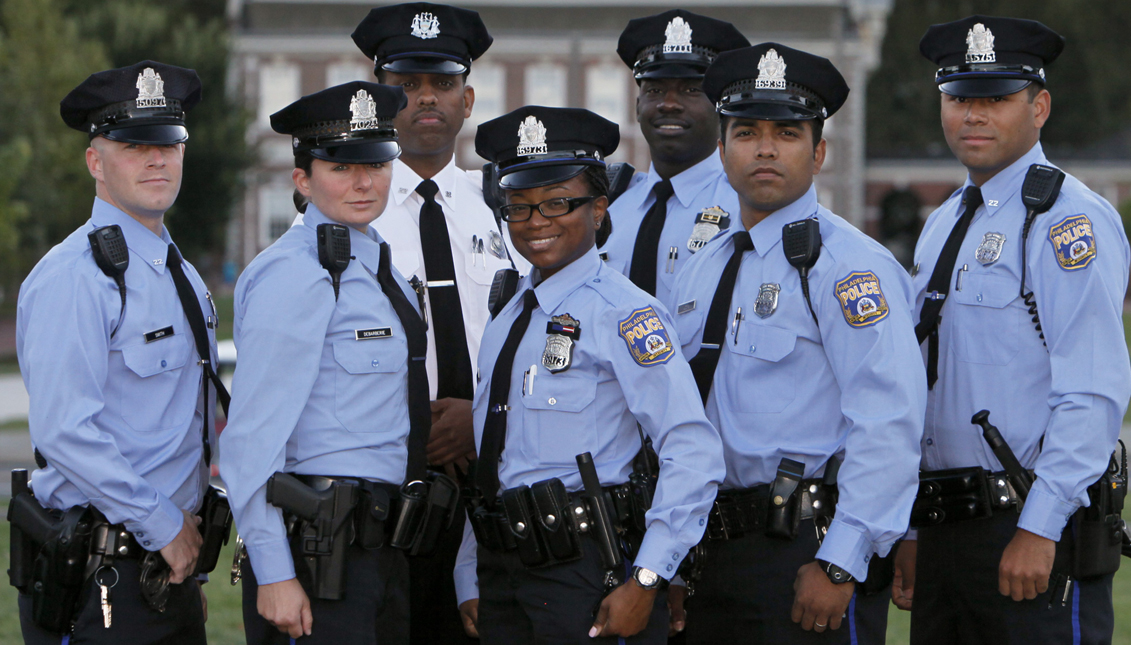
Getting public input on Philly's police contracts is a must
New legislation that passed Philadelphia City Council on Sept. 17 will require the public’s input via a hearing before a new police contract is signed next…
As the cries for police reform continue to ring nationwide, Philadelphia City Council has taken a small step to highlight public viewpoints during the contract negotiation process between the city and its police union.
The bill, which is part of a packet of proposals made to the city by the PA’s Police Reform Working Group, was introduced to City Council by Councilmember Katherine Gilmore Richardson and got a host of cosponsors including councilmembers Kenyatta Johnson, Kendra Brooks, Cherelle Parker, Isaiah Thomas, María Quiñones-Sánchez, Jamie Gauthier, Curtis Jones Jr., Mark Squilla, Allan Domb, Helen Gym, Bobby Henon and Derek Green.
Bill 200364-A passes @PHLCouncil 15-2!
— CouncilmemberKGR (@CouncilwomanKGR) September 17, 2020
Thank you to my colleagues for their support today and thank you to the Philadelphians who have advocated for #PoliceReform for so long.
Today is a great success, but our work continues. We journey on!
Proud to co-sponsor this important bill introduced by @Coucilwomankgr that passed today in @PHLCouncil.
— Councilmember Kendra Brooks (@KendraPHL) September 17, 2020
The FOP holds unchecked power in Philadelphia. It's urgent that the contract be accountable to the people of Philadelphia and this bill is an important first step. https://t.co/ow7PxZ1Uts
It passed during City Council’s virtual session on Sept. 17, 15-2 and will require a public hearing to be worked into the next contract negotiation process between the city and its police union.
The hearing must take place at least 30 days before the Mayor’s administration proposes the new contract to the police union and requires it to report to City Council how the public input influenced the proposal.
For Philadelphia, a public hearing on a police contract would be a first.
The contract includes millions of dollars of spending on police salaries and benefits, which makes up 90% of the police budget and up to 15% of Philadelphia’s total budget. It is also used to set disciplinary procedures for officers.
Gilmore Richardson pinpointed the contract as an area where more transparency is needed to hold the police department accountable for its reform efforts.
RELATED CONTENT
“For far too long, these contracts have been negotiated in the dark, allowing the FOP to create terms and demand payments regardless of results or accountability,” said Gilmore Richardson in a statement after the bill’s passage. “Today that ends.”
Despite the reform bill passing, the president of the police union, John McNesby said it would not change the way the union operates in the contract negotiating process.
"It doesn’t affect the way we do business and the way we’re going to be going forward with our contract," he told KYW.
In his opinion, the legislation, along with others that have come up following the deaths of George Floyd, Breonna Taylor and others, are only reactionary and are “not going to reform anything.”
Earlier in the year, McNesby’s union agreed to extend its contract with the city for an extra year amid the COVID-19 pandemic. The initial three-year contract was signed back in August 2017.
It will now expire on June 30, 2021.











LEAVE A COMMENT:
Join the discussion! Leave a comment.